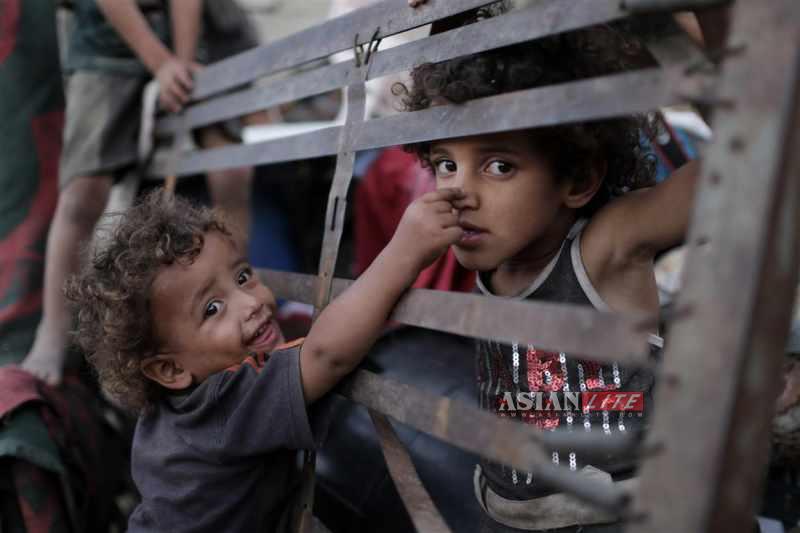
Naifa, a 47-year-old mother from Khan Younis in southern Gaza was cut off from her family’s farmland following the blockade in 2007.
“We were living a decent life before with a stable income. All of a sudden we had to adjust,” recalls Naifa whose elderly husband cannot work and she shoulders the responsibility of providing for her husband and five children.
Losing the stable income and the family’s food basket, they depend almost entirely on WFP food vouchers that helps Naifa buy fresh, nutritious produce for her family. “I would be begging on the streets if it weren’t for the food vouchers,” she says.
However, it is not always the food that matters. It is what you do with the food. That is why Naifa is among 1000 women participating in WFP’s innovative nutrition awareness pilot programme in Gaza that helps women directly address the “double burden” of obesity and malnutrition in their communities.
WFP Palestine’s Nutrition awareness pilot targets women who receive WFP’s food vouchers and are pregnant or have young children. The six-month-long session feature interactive discussions and presentations on diet, hygiene, cooking, purchasing healthy food on a budget, and caring for infants.
Naifa says the programme has helped her realize how crucial her role is for the family. She used to deep-fry food in vegetable oil every day. Now – thanks to her nutrition knowledge and the healthy food she can buy with the vouchers – her family’s food habits have changed dramatically. “Now I am even giving friends and family advice on what they should or should not eat,” she says. “I am looking forward to the sessions every week.”
Malnutrition in Palestine
In a country where households spend more than 50 percent of their monthly income on food, high food prices make it difficult for most families to buy healthy and nutritious foods. According to a recent study by the Palestinian Ministry of Health, more than half of children between ages 12-15 months – as well as 28 percent of pregnant women – suffer from moderate anaemia caused by iron deficiency.
Traditional food assistance with the right foods at the right time can provide just part of a long-term solution; good hygiene, healthy cooking and eating habits and other behavioural factors are crucial as well.
Although WFP’s nutrition awareness programme reaches only a fraction of people receiving food voucher assistance, with food insecure households averaging nearly seven people, the impact will be far greater than the participants alone.
“Understanding the needs of women is critical to achieving a long-term impact,” says WFP Country Director Pablo Recalde. “When it comes to tackling food insecurity and malnutrition, women are the key-holders of success. Supporting women and girls goes a long way in terms of supporting an entire community.”